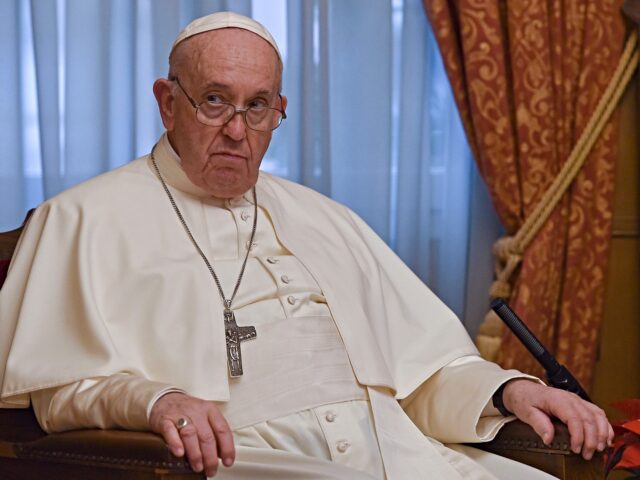ROME — Pope Francis has denounced the arrogance of those who seek dominion over nature, which leads to the degradation of the environment.
In his annual message for the World Day of Prayer for the Care of Creation, the pontiff urges people of faith to embrace “creation as an earthly paradise, mother earth, which is meant to be a place of joy and a promise of happiness for all.”
Harmony among men and women “should also be extended to creation,” he writes in the message released Thursday, “in a sense of responsibility for a humane and integral ecology, the path to salvation for our common home and for us who inhabit it.”
Through sin, creation “was enslaved, albeit through no fault of its own, and finds itself unable to fulfil the lasting meaning and purpose for which it was designed,” he states. “It is subject to dissolution and death, aggravated by the human abuse of nature.”
Therefore, the Holy Spirit “continually guides us and calls us to conversion, to a change in lifestyle in order to resist the degradation of our environment,” he contends.
This conversion “entails leaving behind the arrogance of those who want to exercise dominion over others and nature itself, reducing the latter to an object to be manipulated,” he adds, “and instead embracing the humility of those who care for others and for all of creation.”
To claim the right to possess and dominate nature “represents a form of idolatry,” Francis declares, “a Promethean version of man who, intoxicated by his technocratic power, arrogantly places the earth in a ‘dis-graced’ condition, deprived of God’s grace.”
The protection of creation “is not only an ethical issue, but one that is eminently theological, for it is the point where the mystery of man and the mystery of God intersect,” he asserts.
Thursday’s message is just the latest in an unbroken series of ecological pronouncements that have characterized Francis’ 11-year pontificate.
In 2015, he became the first pope in history to dedicate an entire encyclical letter to environmental issues. In that letter, bearing the Latin title Laudato Si (“Praised Be”), the pope urged Christians to become more ecologically aware and active.
The earth “is beginning to look more and more like an immense pile of filth” as “once beautiful landscapes are now covered with rubbish,” he wrote.
Francis also decried a failure to recycle paper and other resources, while calling climate change “a global problem with grave implications” and “one of the principal challenges facing humanity in our day.”
Citing “scientific studies,” the pontiff said that “most global warming in recent decades is due to the great concentration of greenhouse gases (carbon dioxide, methane, nitrogen oxides and others) released mainly as a result of human activity.”
“Every effort to protect and improve our world entails profound changes in lifestyles, models of production and consumption, and the established structures of power which today govern societies,” he warned.
This past April, Pope Francis told CBS News that climate change deniers are “stupid” to refute compelling evidence of a climate emergency.
“Some people are stupid (necios), and stupid even if you show them research, they don’t believe it,” the pontiff told CBS Evening News anchor Norah O’Donnell when asked what he would say to the deniers of the climate crisis.
A vocal enthusiast for the war on climate change, Pope Francis has called global warming “one of the most serious and worrying phenomena of our time” and has urged “drastic measures” to combat climate change.
“Now is the time to abandon our dependence on fossil fuels and move, quickly and decisively, towards forms of clean energy and a sustainable and circular economy,” he exhorted in September 2019. “Let us also learn to listen to indigenous peoples, whose age-old wisdom can teach us how to live in a better relationship with the environment.”
“While the situation is not good and the planet is suffering, the window of opportunity is still open,” he warned. “We are still in time. Let us not let it close.”
He has also expressed his opinion that any skepticism regarding an alleged “climate emergency” is “perverse.”
The pope has singled out the United States as particularly to blame for the “climate emergency,” despite the fact that it is one of the countries with the cleanest air in the world.
“If we consider that emissions per individual in the United States are about two times greater than those of individuals living in China, and about seven times greater than the average of the poorest countries, we can state that a broad change in the irresponsible lifestyle connected with the Western model would have a significant long-term impact,” he stated last October.
Among the skeptics of the climate crisis decried by Francis are over 1,600 prominent scientists, including two Nobel Prize winners, who issued the “World Climate Declaration” last August, refuting the existence of a so-called “climate emergency.”
Among other things, the Declaration asserted that climate models have proven inadequate for predicting global warming, that carbon dioxide (CO2) is not a pollutant, and that climate change has not increased natural disasters.
The world has warmed “significantly less than predicted by IPCC on the basis of modeled anthropogenic forcing,” the text states, and the gap between the real world and the modeled world “tells us that we are far from understanding climate change.”
“There is no statistical evidence that global warming is intensifying hurricanes, floods, droughts and suchlike natural disasters, or making them more frequent,” the document declared. “However, there is ample evidence that CO2-mitigation measures are as damaging as they are costly.”
“There is no climate emergency,” it concluded. “Therefore, there is no cause for panic and alarm.”

COMMENTS
Please let us know if you're having issues with commenting.